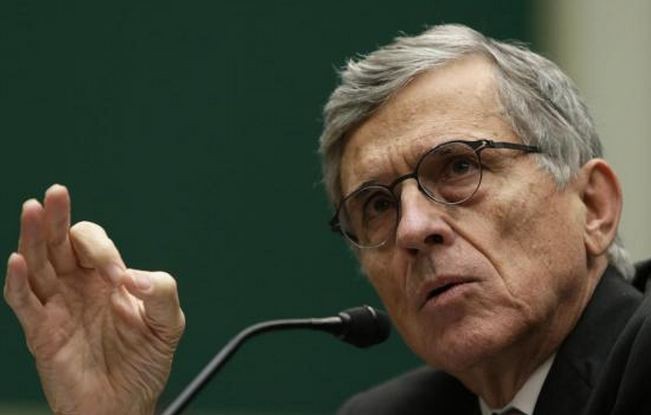The first two in an expected wave of lawsuits were filed Monday to prevent the U.S. Federal Communications Commission (FCC) from enforcing its new net neutrality rules that ban internet service providers from discriminating against customers that pay less for internet service.
The lawsuits were filed by the US Telecom Association, which represents a number of large broadband providers, filed a lawsuit in the U.S. Court of Appeals for the District of Columbia. A small firm, Alamo Broadband, based in San Antonio, Texas, filed its suit in New Orleans, said The Washington Post. Alamo alleges that the use of Title II will apply onerous requirements on it.
The FCC described the petitions as "premature and subject to dismissal."
The FCC's regulations passed in February aim to keep Internet providers from speeding up, slowing down or blocking Web traffic. The lawsuits said the regulations that block these moves of theirs are unacceptable.
"We do not believe the Federal Communications Commission's move to utility-style regulation invoking Title II authority is legally sustainable," said USTelecom President Walter McCormick. "Therefore, we are filing a petition to protect our procedural rights in challenging the recently adopted open Internet order."
"As we have said throughout this debate," said USTelecom president Walter McCormick in a statement, "our member companies conduct their business in conformance with the open Internet principles, and support their enactment into law.
"However, we also support a regulatory approach that relies upon Section 706 authority of the Communications Act, and we do not believe the Federal Communications Commission's move to utility-style regulation invoking Title II authority is legally sustainable."
USTelecom senior vice president Jon Banks said the focus of the group's legal appeal "will be on the FCC's decision to reclassify broadband Internet access service as a public utility service after a decade of amazing innovation and investment under the FCC's previous light-touch approach.
He claims his industry doesn't block or throttle traffic and FCC rules prohibiting blocking or throttling won't be the focus of their appeal.
USTelecom said it filed a "protective petition for review" as a "precautionary move to preserve procedural rights in challenging" the FCC. It felt it had to file something within 10 days of when the FCC order was published in the Federal Register.
The lawsuits came earlier than expected. Many analysts assumed Internet providers would have to wait until the FCC's rules were officially published in the Federal Register before being eligible to appeal.
Consumer advocacy groups that championed the new and tougher rules said Title II was "the right law" and said that the FCC has a strong case.
"These companies have threatened all along to sue over the FCC's decision, even though that decision is supported by millions of people and absolutely essential for our economy," said Matt Wood, policy director at Free Press. "Apparently some of them couldn't wait to make good on that threat."



























